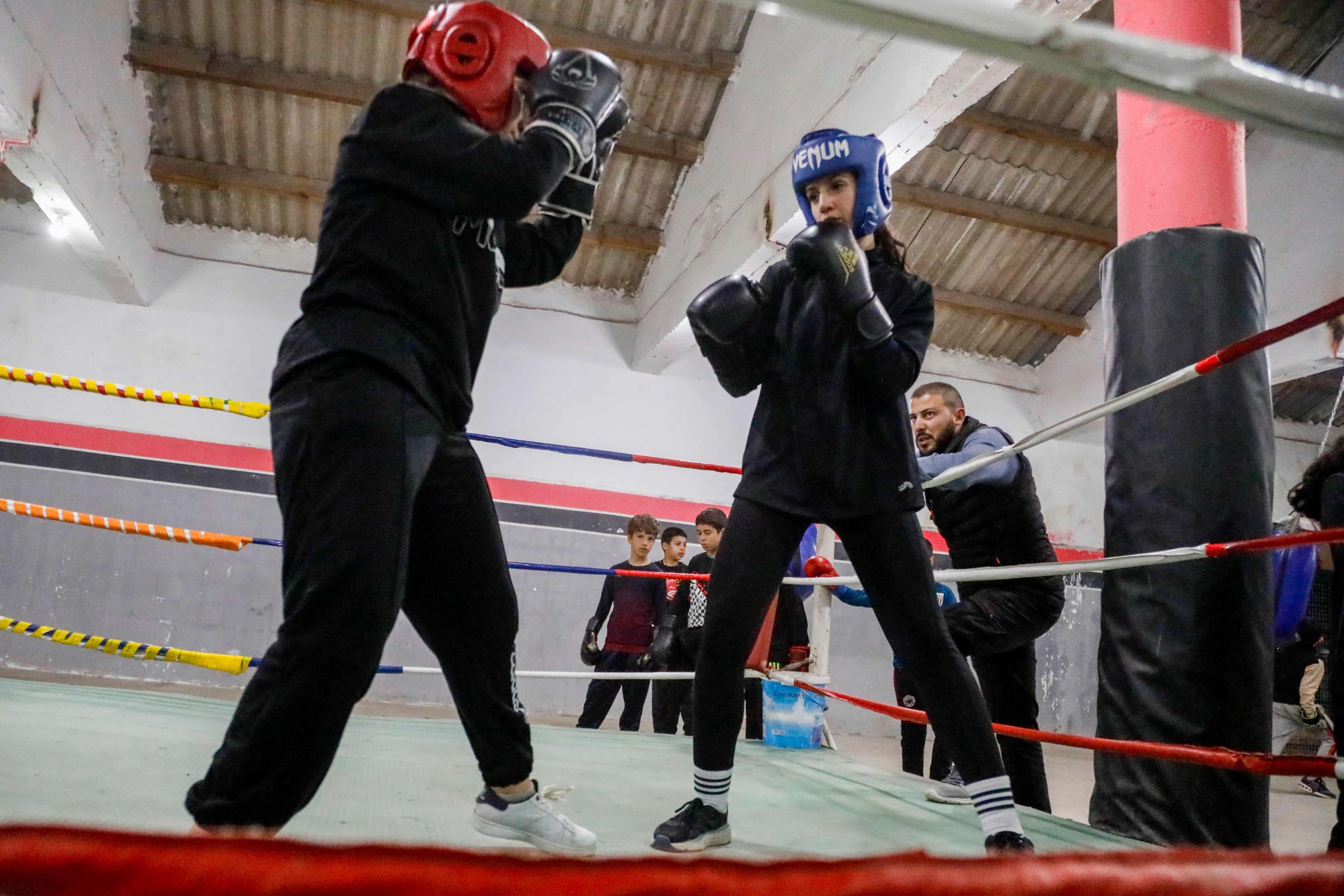© Turkuvaz Haberleşme ve Yayıncılık 2026
In a gym nestled in the Kabylia region of northern Algeria, 15-year-old Cerine Kessal punches relentlessly into a bag, her sights set on greater achievements.
A two-time national champion, Kessal’s ambitions extend beyond local titles – she dreams of competing at African and world championships.
Inspired by the Olympic triumph of Imane Khelif, the young boxer is part of a growing wave of female athletes taking up boxing in Algeria, a sport long dominated by men.
Khelif’s groundbreaking Olympic gold in Paris last year sparked a surge in interest among Algerian women and girls.
The controversy surrounding her gender eligibility, stemming from the International Boxing Association’s disqualification over her XY chromosomes, did little to dampen her status as a trailblazer.
Despite the setback, Khelif vowed to continue fighting both in the ring and in court, embodying resilience and determination.
Her impact extends far beyond her own victories. In the Jeunesse Sportive Azazga club, Kessal’s coach, Djaafar Ourhoun, describes Khelif as "a role model" for the 20 women boxers now training at the small gym, which was transformed from an old slaughterhouse with support from the local community.

Kessal, who speaks a mix of Arabic, French and Tamazight, echoed her admiration, saying, "I want to be like Imane Khelif and win an Olympic gold."
Khelif’s influence is felt across the country, even in the conservative southern regions.
In Bejaia and further south in Djelfa, the once-taboo sport of women’s boxing is seeing a revival, thanks in part to Khelif’s victory.
Local clubs like Dream Team and Sidi Ayad Boxing Club now regularly attract female members, and even parents, once hesitant, are increasingly supportive of their daughters' boxing ambitions.
"We first tried introducing women’s boxing in 2006, but it wasn’t successful due to the region's conservatism," said Mohamed Benyacoub, director of the Ennasr club. "Now, Khelif has shattered the taboo. Women can box."
Nacim Touami, a boxing referee whose wife is a professional boxer, sees a cultural shift.
"Parents used to prefer volleyball or swimming for their daughters. But after Khelif’s gold, we’ve seen a real obsession with boxing," he said.
This change is most apparent among mothers, according to Manel Berkache, a former national champion and coach at JSA.
"Mothers are the ones now registering their daughters, attending training and cheering at matches. It’s a beautiful thing," she said.
Hocine Oucherif, vice president of the Algerian Boxing Federation, calls this the "Imane Khelif phenomenon."
He credits Khelif’s success for inspiring a surge in female participation, noting that this year’s national championships saw over 100 junior female boxers, more than double the previous year’s count.
Among them was Kessal, who clinched gold, defeating opponents from clubs like Tiaret Civil Protection Club, where Khelif began her journey.
Kessal, along with 14-year-old Hayat Berouali – who only began boxing a month ago after being inspired by Khelif’s Olympic fights – represents the next wave of Algerian female boxers determined to make their mark.
"I liked boxing after watching the Olympics, especially Khelif’s fights," Berouali said, her eyes shining with ambition. "My parents encouraged me, and now I want to become a champion."
